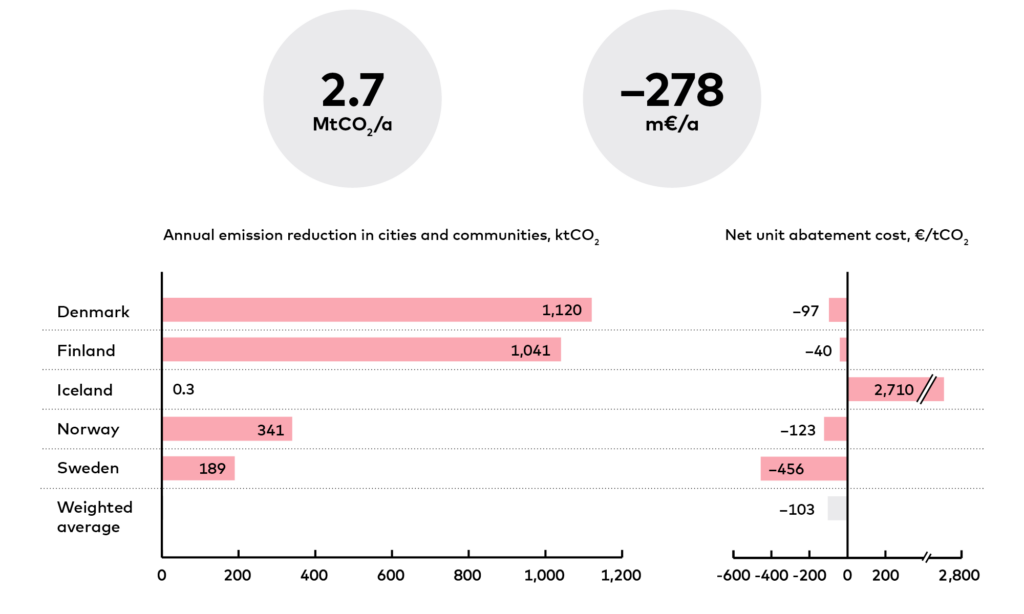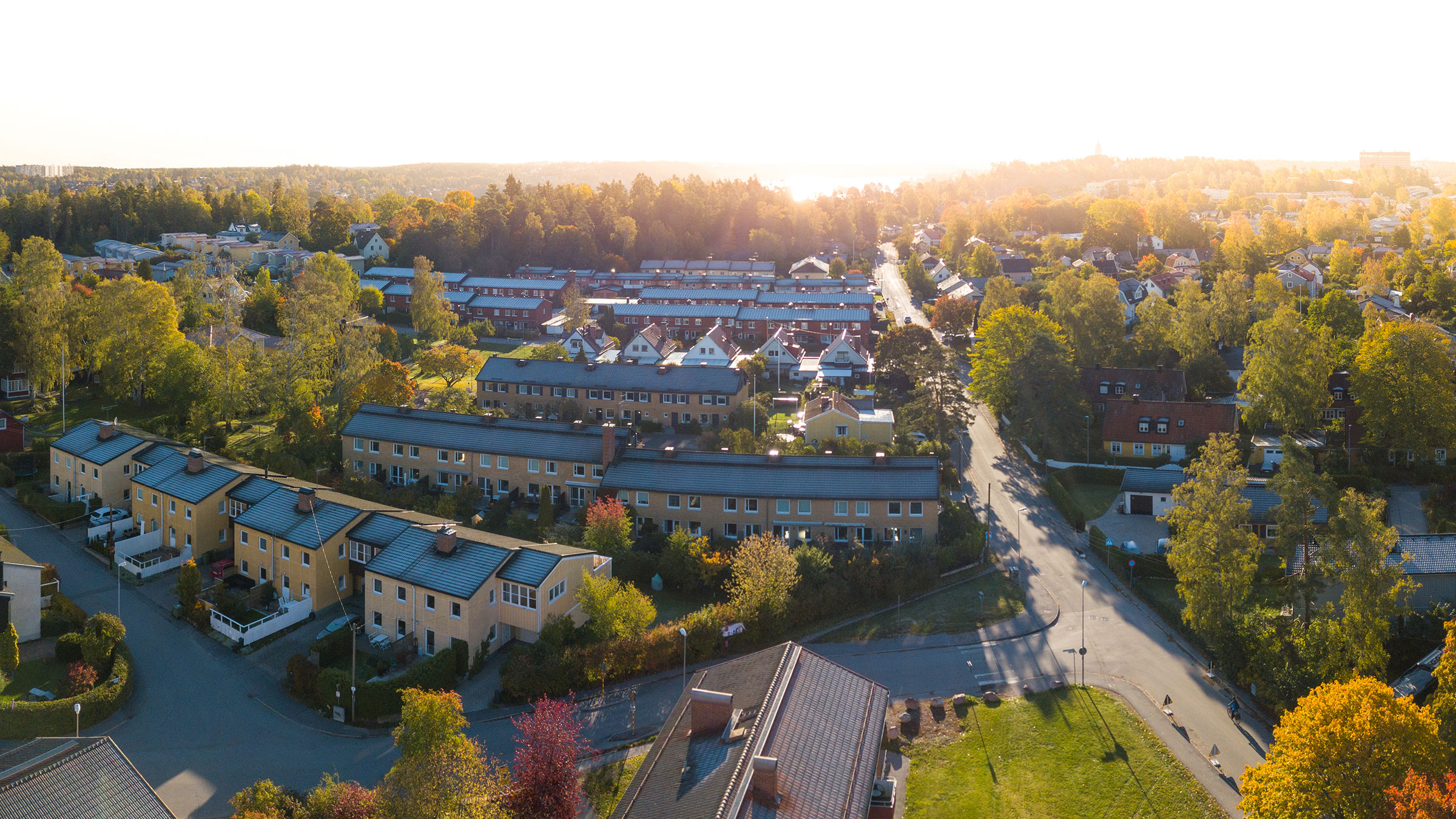Climate impact
The heat is typically collected by circulating a fluid in a well that is 100 to 200 metres deep and extracted by a heat pump, which delivers three units of heat for each unit of electricity used. Ground source heat pumps can replace the fuel or electricity-based heating systems of buildings. Almost a quarter of all single-family houses in Sweden have ground source heat pumps. The City of Stockholm requires a permit for the borehole, but has made getting it especially easy; they have set up an e-platform for the planning and applications for drilling wells, and the local environment authority takes care of everything with the utility companies and the neighbours.
The climate impact of heat pumps depends on the emissions of the electricity used by the pumps and the heat generation replaced. Of the homes that are not connected to the district heating network in Stockholm, we estimate that 36% have a ground source heat pump. If ground source heat pumps made up 36% of the heating supply of single-family houses not connected to the district heating network in all Nordic municipalities, emissions could be reduced by 2.7 MtCO2.
Costs and savings
The cost of a ground source heat pump includes drilling boreholes, installing pipes and the heat pump and electricity used by the pump. As the systems that the heat pumps would replace have already been paid for, we compare the entire cost of the heat pump system to the alternative fuel cost – oil, gas or direct electricity. The abatement cost varies by country and alternative. We estimate the weighted average to be –103 €/tCO2.

Other benefits
Heat pumps save space as there are no requirements for fuel storage.
They are safe to use because there is no combustion involved and reduce local air pollution when replacing fuel combustion. Since heat pumps can be fully automated, they are low maintenance. As heat pumps can provide both cooling in summer and heating in winter, they can increase living comfort.
Barriers
- The investment costs are high for ground source heat pumps compared to other residential heat pumps and other heating alternatives.
- In some cases, it might not make economic sense to make the investment if the tenancy is unlikely to continue for very long and the resale value of the house is low.
- The permit and installation process entails work, and some residents, elderly people in particular, might not feel up to it.
- In densely populated areas, the required 20-metre distance between the wells can limit their implementation.
Enablers
- Relatively shallow bedrock reduces the costs of drilling the boreholes.
- Affordable electricity and high cost of heating fuels improves the economics.
- Efficient application processes as well as available information and advice for municipalities and homeowners facilitate the adoption of heat pumps in Sweden
- Sweden also promotes the use of ground source heat pumps through economic incentives such as a 30% tax deduction for installation work and high taxation of heating fuels.































RELATED SOLUTIONS